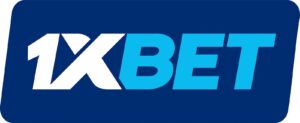In today’s digital age, more and more companies are embracing remote work. This means that the number of applicants vying for these coveted positions is also on the rise. So, how can you set yourself apart from the rest? One way is by obtaining relevant certifications that demonstrate your expertise and commitment to success in a remote work environment.
Table of Contents
ToggleCertifications designed specifically for remote jobs not only showcase your skills but also provide employers with confidence in your ability to thrive in a virtual setting. Whether it’s project management, software development, digital marketing, or any other field, there’s likely a certification that can boost your credibility and increase your chances of landing that dream remote job.
So if you’re ready to take your career to new heights and join the growing community of remote workers, keep reading as I explore some of the most valuable certifications available for remote jobs. From flexible scheduling to location independence, working remotely offers incredible opportunities – and with the right certifications under your belt, you’ll be well-equipped to seize them all
Certifications for Remote Jobs
Popular Remote Job Certifications
When it comes to remote jobs, having the right certifications can give you a competitive edge in the job market. Here are some popular certifications that are highly valued by employers:
- Project Management Professional (PMP): This certification is ideal for individuals seeking remote project management roles. PMP certification demonstrates your expertise in managing projects, leading teams, and ensuring successful project outcomes.
- Certified ScrumMaster (CSM): For those interested in agile development and project management, obtaining a Certified ScrumMaster certification can be beneficial. This certification validates your knowledge of Scrum methodologies and equips you with the skills to lead agile teams effectively.
- Google Analytics Individual Qualification (GAIQ): In today’s digital age, data analysis plays a crucial role in decision-making. GAIQ certification showcases your proficiency in using Google Analytics tools and interpreting data, making it valuable for remote marketing or analytics positions.
- Cisco Certified Network Associate (CCNA): With the increasing demand for network administrators and engineers in remote work setups, CCNA certification is highly sought after. It certifies your ability to install, configure, operate, and troubleshoot medium-sized routed and switched networks.
- Amazon Web Services Certified Developer (AWS CD): As cloud computing continues to dominate the IT landscape, having an AWS CD certification can open doors to lucrative remote opportunities. This certification validates your expertise in developing applications on Amazon Web Services platform.
 Benefits of Remote Job Certifications
Benefits of Remote Job Certifications
Obtaining relevant certifications for remote jobs offers numerous advantages:
- Increased employability: Employers often prioritize candidates with certifications as they demonstrate specialized skills and knowledge.
- Competitive advantage: Certifications set you apart from other candidates by showcasing your commitment to professional development.
- Skill enhancement: Preparing for certifications provides an opportunity to acquire new skills and deepen existing ones, making you more proficient in your field.
- Remote work suitability: Some certifications specifically cater to remote job roles by focusing on skills like virtual collaboration, project management, and remote team leadership.
How to Choose the Right Certification for Remote Jobs
Selecting the right certification can be a daunting task. Considering these factors can help you make an informed decision:
- Industry relevance: Identify certifications that are highly valued in your target industry or profession.
- Job requirements: Research the certifications preferred or required by employers for remote positions you’re interested in.
- Career goals: Align your certification choices with your long-term career aspirations and areas of interest.
- Market demand: Evaluate the current market demand for professionals with specific certifications to ensure ample job opportunities.
Remember, while certifications can enhance your resume and boost your chances of landing a remote job, they should complement your skills and experience. Choose wisely based on what aligns best with your career goals and interests.
In conclusion, having relevant certifications for remote jobs can significantly increase your employability and give you a competitive edge. By investing time and effort into obtaining these certifications, you demonstrate dedication to professional growth while acquiring valuable skills that are highly sought after in today’s remote work environment.


 Benefits of Remote Job Certifications
Benefits of Remote Job Certifications








